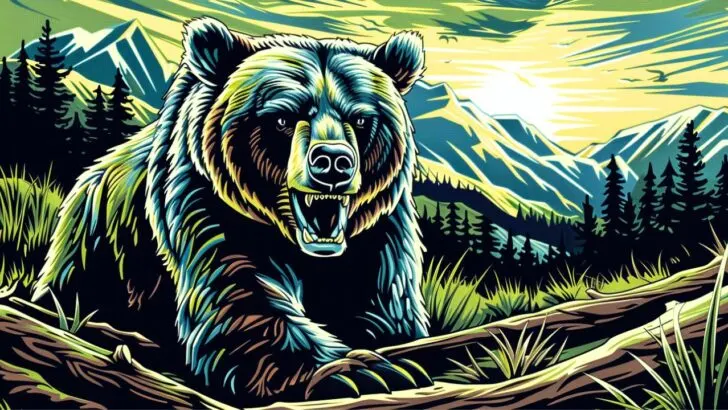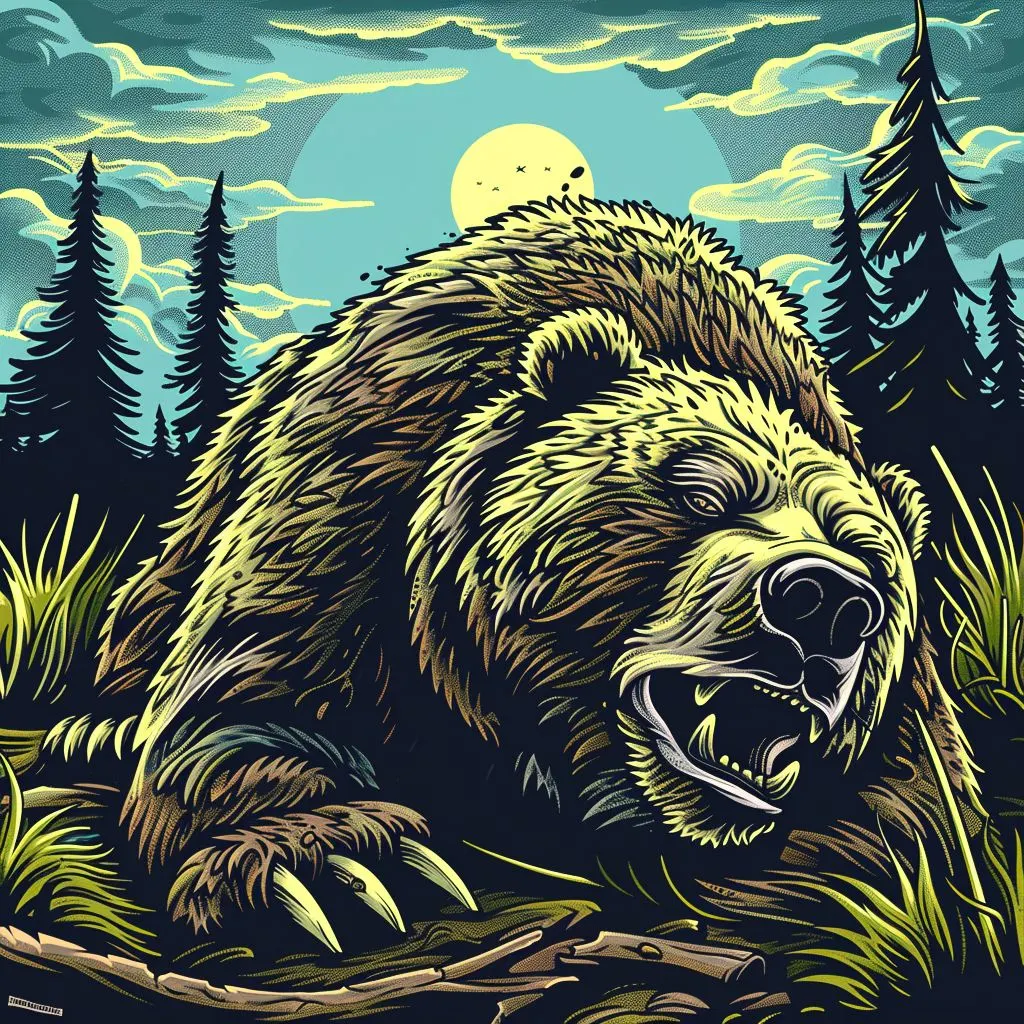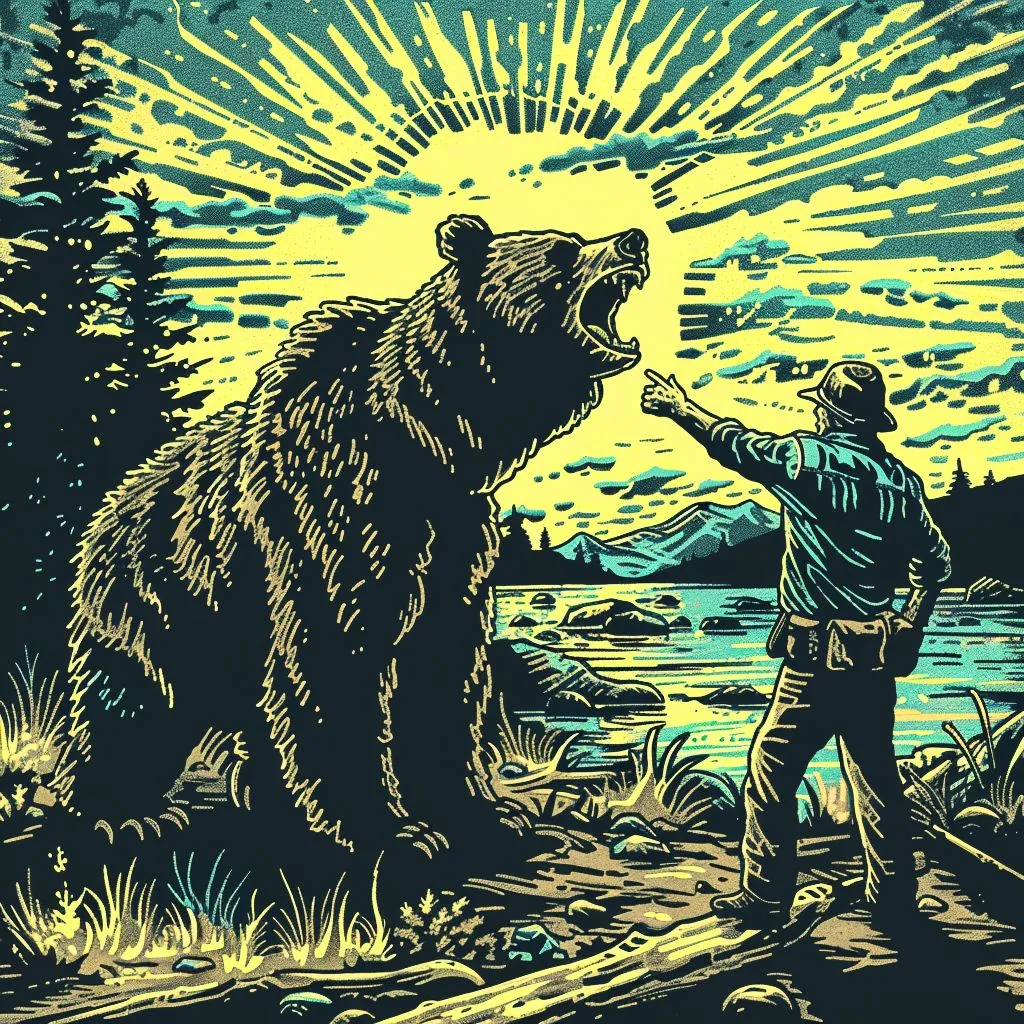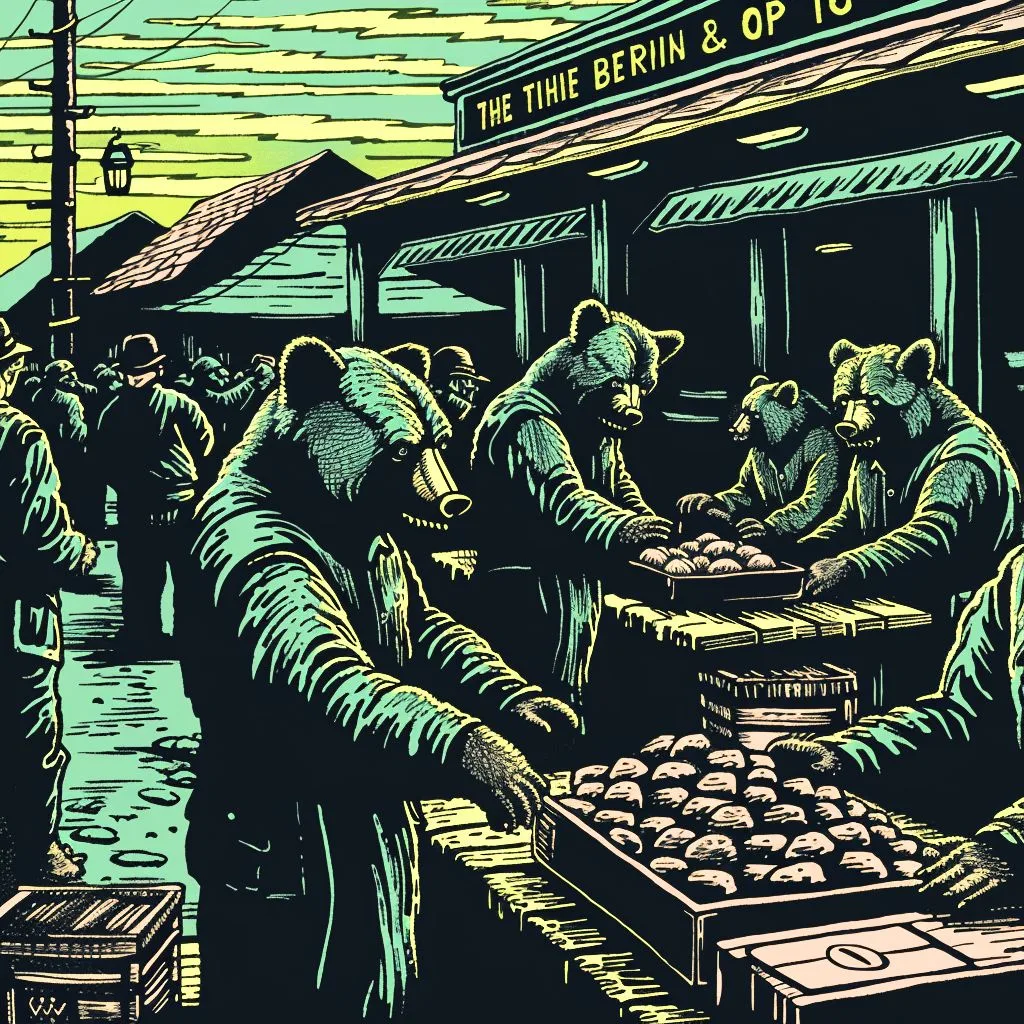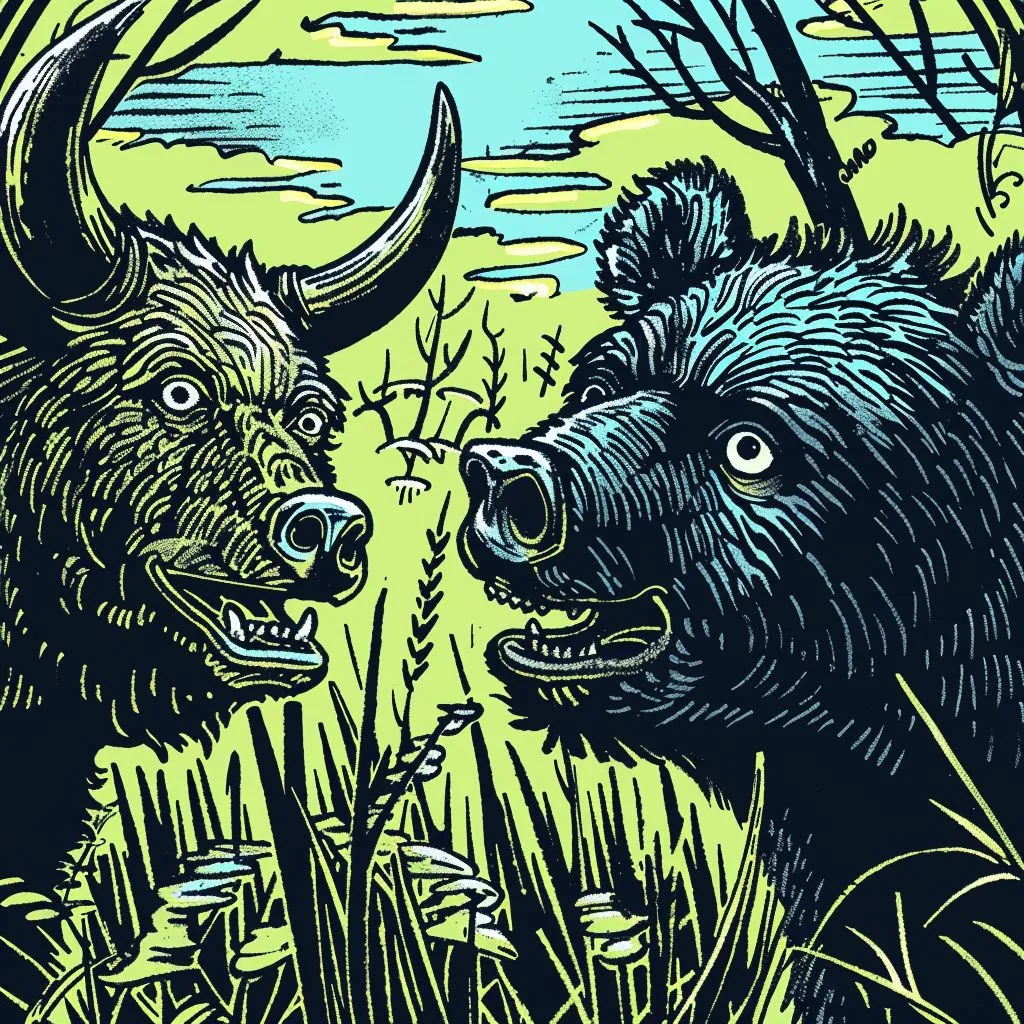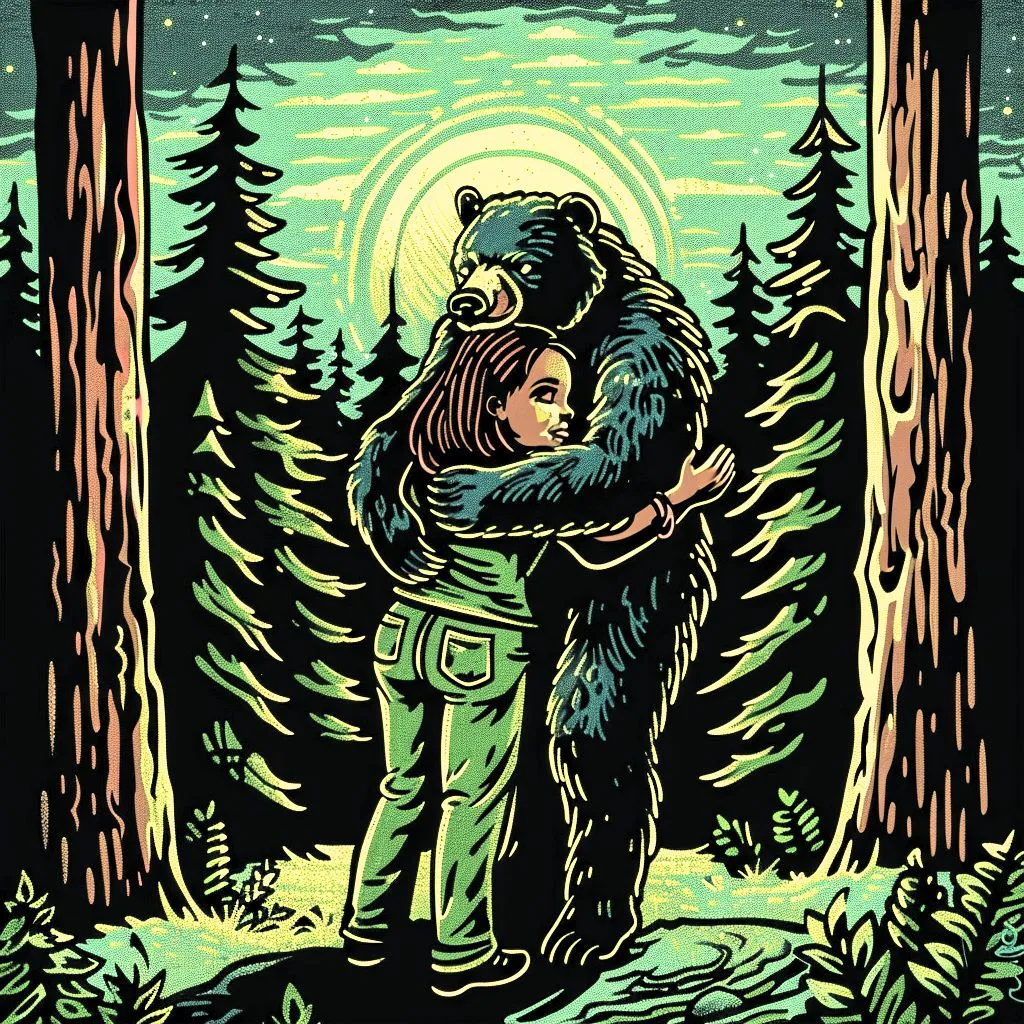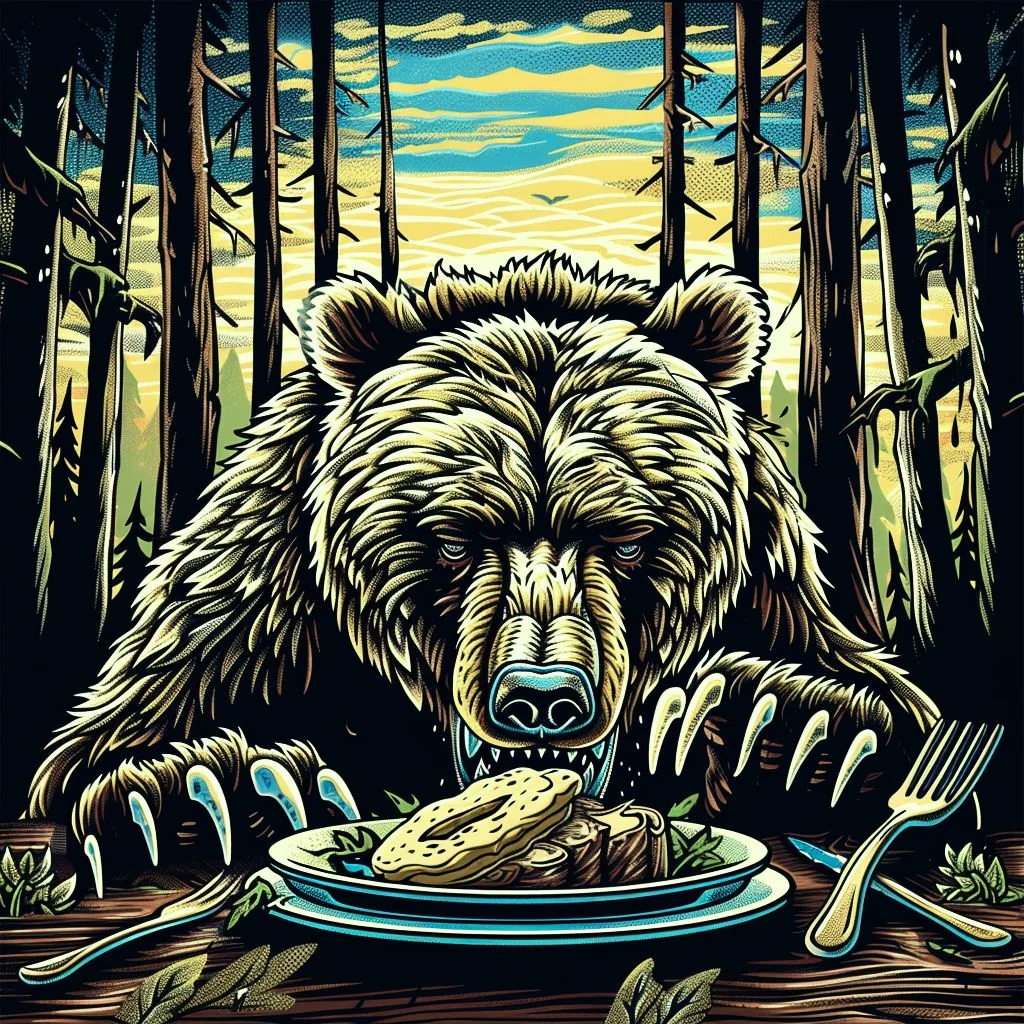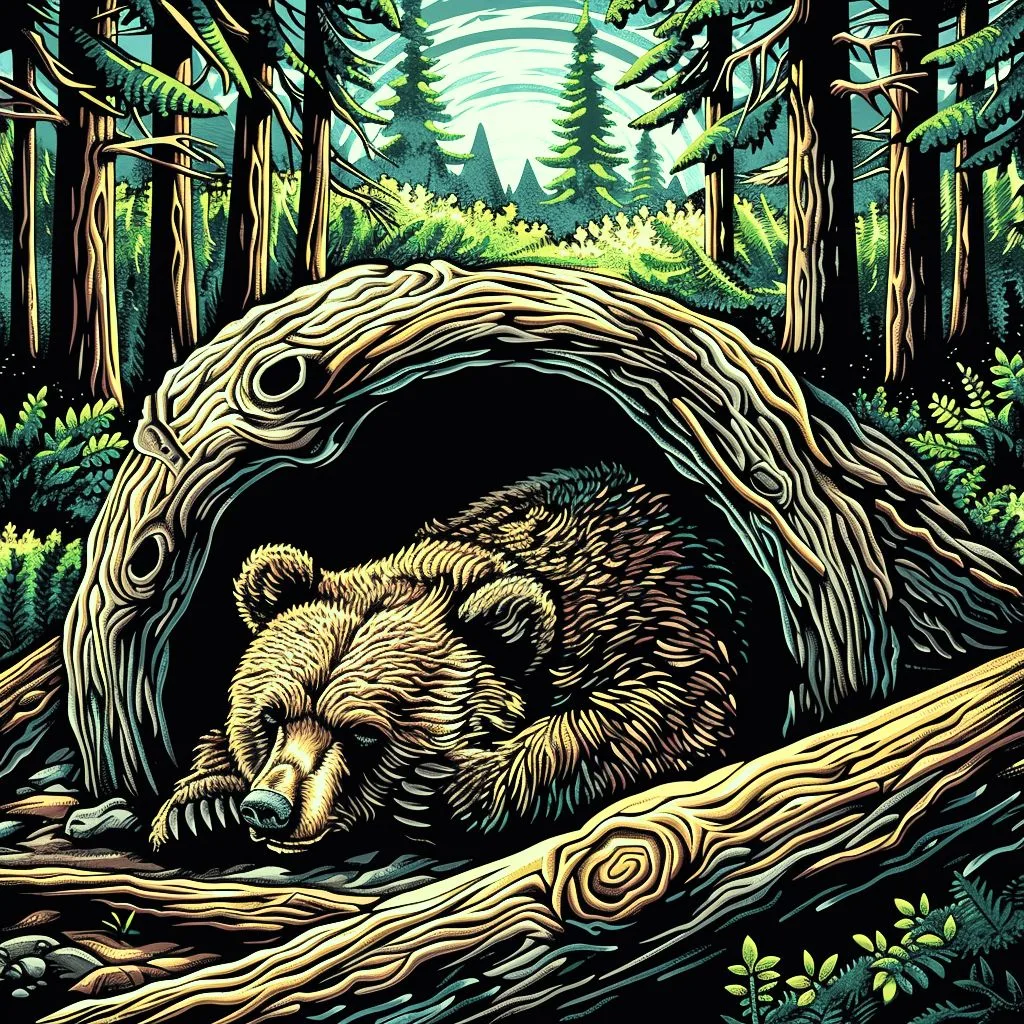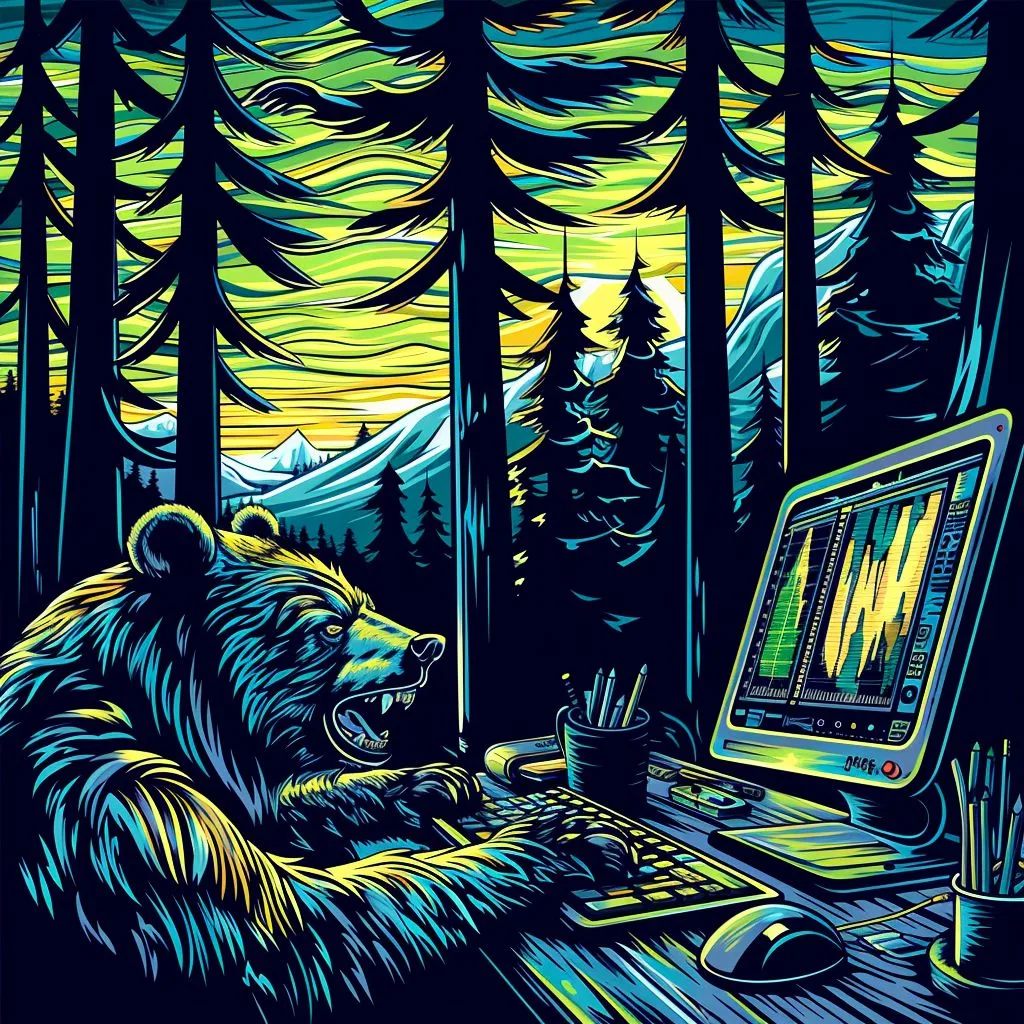Bears aren’t just magnificent creatures roaming the forests; they’re also a rich source of metaphors and symbols in the English language.
Whether you’re fascinated by wildlife or eager to add more depth to your communication, delving into bear idioms can unlock new layers of meaning in your conversations.
From the intensity of preparations to the dynamics of financial markets, bears have left their paw prints all over our language.
Here’s a rundown of 10 bear idioms that anyone interested in language’s nuances should, or even must, know, each explained with its meanings and real-life applications.
Step into the bear den of idioms and let your language roar with the strength and wisdom these expressions bear.
1. Loaded for Bear
The phrase “Loaded for Bear” implies being fully prepared or heavily equipped for any significant challenges ahead.
It’s often used to describe thorough preparation for difficult situations, mirroring the seriousness a hunter would need when targeting a bear.
This idiom is a favorite in business and personal contexts, where preparation and the right tools are crucial for success.
It celebrates readiness and the strategic approach to tackling big tasks or overcoming substantial obstacles.
Example 1: Janet researched all weekend before the negotiation meeting and loaded for bear.
Example 2: Knowing the competition would be tough, the team practiced all season, loaded for bear.
2. Like a Bear with a Sore Head
“Like a Bear with a Sore Head” describes someone extremely irritable or difficult to please.
This idiom draws a parallel between the grumpiness of a bear with discomfort and a person’s foul mood.
It’s a humorous way to comment on someone’s temperament, especially when their moodiness stands out starkly against the expected demeanor.
Example 1: Avoid asking for favors today; the boss is like a bear with a sore head this morning.
Example 2: Mia was like a bear with a sore head at breakfast after a night of poor sleep.
3. Poke the Bear
To “Poke the Bear” means to provoke or challenge someone or something that is better left alone.
This idiom warns against stirring up trouble or inciting a reaction from someone likely to respond negatively.
It serves as a reminder of the wisdom in choosing battles wisely and the potential repercussions of needless provocation.
Example 1: He knew arguing would just poke the bear, so he chose to remain silent.
Example 2: Asking about the previous manager’s departure is like poking the bear; it’s a sensitive topic.
4. To Have a Bear by the Tail
Having “A Bear by the Tail” signifies dealing with a difficult situation to manage or control.
It suggests that once you start handling this challenge, letting go could lead to worse consequences, much like the dangerous predicament of holding onto a bear.
This idiom is useful for describing tasks or problems that are as risky as they are challenging, emphasizing the precarious balance required to manage them.
Example 1: Taking on the renovation project felt like having a bear by the tail, with one problem leading to another.
Example 2: After promising too much, the politician realized he had a bear by the tail with his campaign pledges.
5. Bear Market
A graph trending downward, with a bear’s silhouette, representing the decline of a “Bear Market.”
“Bear Market” refers to a period in the stock market where prices are falling, encouraging selling.
The term captures the essence of a bear swiping downward, symbolizing the market’s decline.
It’s a key concept for investors and financial analysts, marking times of pessimism and caution in economic environments.
Example 1: During the bear market, many investors choose to wait it out rather than risk further losses.
Example 2: The news reported that we’ve entered a bear market, causing a drop in consumer confidence.
6. Bears and Bulls
While not an idiom in the strictest sense, mentioning “Bears and Bulls” in financial contexts symbolizes the ongoing battle between pessimism and optimism in the markets, with bears indicating downward trends and bulls the opposite.
This imagery is central to understanding market sentiments and strategies, embodying financial investments’ dynamic and often unpredictable nature.
Example 1: This week, the bulls seem to be winning, pushing the market higher despite last month’s bearish outlook.
Example 2: Analysts are debating whether we’re seeing a true change in direction or if the bears will return soon to dominate the market again.
7. Bear Hug
In the financial world, a “Bear Hug” refers to an offer to buy a company’s shares at a price significantly higher than their current market value.
This strategy resembles an overpowering embrace that the target company finds difficult to refuse, even if the offer comes from an unwelcome suitor.
It’s often used in discussions of mergers and acquisitions, illustrating the aggressive yet enticing approach of acquiring companies.
Example 1: The startup received a bear hug from a tech giant, making it almost impossible to decline the buyout offer.
Example 2: Their strategy has always been aggressive acquisitions, often using the bear hug to secure deals.
8. As Hungry as a Bear
This idiom describes extreme hunger, the kind that is voracious and insatiable, much like a bear awakening from hibernation or preparing for it.
It emphasizes a natural, primal need for sustenance and is often used to add humor or exaggerate one’s state of hunger.
Example 1: After hiking all day, I was as hungry as a bear and could eat a whole pizza myself.
Example 2: You should have seen the kids at dinner; they were as hungry as bears, finishing everything on their plates.
9. As Busy as a Hibernating Bear
While “As Busy as a Hibernating Bear” might sound like a paradox, it humorously describes a state of doing very little or nothing at all under the guise of being busy.
It plays on the idea of hibernation, where bears are inactive and secluded, to humorously describe someone who is claiming to be busy but is, in reality, idle or resting.
Example 1: Every time I ask him for help, he says he’s as busy as a hibernating bear, but we all know he’s just lounging at home.
Example 2: She joked about her weekend plans to be as busy as a hibernating bear, planning to stay in bed and relax.
10. Bear Trap
A “Bear Trap” occurs in the financial markets when a declining trend indicates a continuing downward movement, enticing investors to expect further losses and act bearishly, only for the market to reverse direction and move upward sharply instead.
This scenario traps the bears – those who have bet on the market’s decline – causing them to incur losses as the market unexpectedly rallies.
Interestingly, the opposite scenario is known as a “Bull Trap,” where a seeming upward trend reverses sharply, catching optimistic investors off-guard.
It’s a cautionary term used among investors and traders to warn against premature decisions based on the assumption that a falling market will continue to drop. The concept underscores the importance of careful analysis and skepticism in the face of market volatility.
Example 1: Many thought the dip was the start of a bear market, but it turned out to be a bear trap, rebounding quickly and leaving short sellers in a scramble.
Example 2: The sudden recovery of stock prices after last week’s slump caught many off guard, proving to be a classic bear trap for pessimistic investors.”
Bearing Through Life: Grin, Bear It, and Let Your Words Roar!
Bear idioms enrich our conversations with vivid imagery and deep cultural meanings, bridging the gap between the wildness of nature and the nuances of human expression.
Whether it’s the careful strategy behind being “Loaded for Bear” or the wisdom in avoiding “Poking the Bear,” these expressions offer a lexicon for navigating life’s challenges and dynamics with strength, caution, and, sometimes, a touch of humor.
Adopting these idioms can sharpen your communication, making it as impactful as the creatures that inspired them.
They remind us of the qualities we admire in bears—power, resilience, and a formidable presence—inviting us to embody these traits in our dealings and aspirations.
So, the next time you face a daunting challenge or savor a moment of triumph, let the bear idioms guide your words, infusing your language with these majestic animals’ wild essence and enduring wisdom.
Whether you’re delving into the financial jungle or navigating the complex terrain of personal endeavors, a bear idiom can illuminate your path and offer insights wrapped in the allure of the wild.

Hey fellow Linguaholics! It’s me, Marcel. I am the proud owner of linguaholic.com. Languages have always been my passion and I have studied Linguistics, Computational Linguistics and Sinology at the University of Zurich. It is my utmost pleasure to share with all of you guys what I know about languages and linguistics in general.

